Devotions
from The Woods @Wanamaker
Need Prayer From Our Pastors? Click Here
|
Hey Church Family!
We've all made mistakes with our mouths, many times. We've all said things we wish we hadn't. But we've also had times when we've built people up. We've used words to encourage and uplift people around us. I hope these last few weeks have been challenging, yet good for you. It's a reminder that we all need to be quick to listen and slow to speak. This week, I was reminded of Joseph from the Old Testament. He was a guy who had every reason to be bitter about his situation. His brothers sold him into slavery. Their prank went too far and was no longer funny. Just imagine the pain that came as he was led away, begging for them to change their minds. Or how about Potiphar's wife, who accused him of rape. He did nothing wrong, and still found himself in prison. Then while in prison, he's forgotten and passed over. A guy who should be thanking him, forgot all about him. If there was ever a person in history who could be angry, bitter, and distrusting of people—it was Joseph. Yet there is one little factor in Joseph's story that indicates he set aside his bitterness. We're reminded multiple times in Joseph's story that God was with him (see Genesis 39:2 and 39:21). What's more interesting to me, is that Joseph lived his life as if God was with him. Joseph responded to Potiphar's wife, "How could I do this and sin against God?" He said to Pharaoh, "I cannot interpret your dream, but God can." Potiphar, the jailer, and Pharaoh all recognized that God was with him. Over and over again, we see this amazing feature in Joseph's life—God was with him and he lived as if God was with him. I believe that is central to dealing with bitterness. Understanding that God is right there in the hurt, God is present in the pain, and that God feels what you feel when those words were spoken to you, about you, and over you—is crucial to getting rid of all bitterness. God knows because he is with you. The question you must answer is this: Will I live my life as if God is with me? Or will I shake my fist at God and say, "God, how could you let this happen to me?" How you answer that question will make the difference in what you do with the bitterness you're carrying. Who knows, there may be a day when your words will determine the destiny of the person who hurt you. They may stand before you, and you'll have an opportunity to say something to them. In that moment, the memory of what they did to you, or said about you will flood your mind. But you'll have a choice to make. What will come out of your mouth? Will it be words that build them up? Or words that tear them down? Joseph took his cue from the one who was with him. He said to his brothers, "Don't be afraid. Am I God? You planned something bad for me, but God produced something good from it." (Genesis 50:20) Might I suggest that do the same—take your cue from the one who's with you. Together in Christ, Pastor Michael
0 Comments
Hey Church Family!
This week we look at the Apostle Paul to remind us of how to use our words. His approach begins with the idea that since we've met the real Jesus, everything has changed. You're no longer the same person you once were. You used to live however you wanted. You used to do whatever you wanted. You used to say whatever you wanted. But now that you've met Jesus, everything has changed. You're a new creation. So, because you're a new creation, what comes out of your mouth really matters. Paul gives us two powerful word pictures to help us understand what to do when it comes to our words. The first is that we are to avoid foul words. The image he draws upon is the smell that comes from rotten fish. Essentially he says, "Avoid fish-mouth!" Don't let anything distasteful, unwholesome, or foul come out of your mouth. It's a very powerful image. The second image Paul uses is that of a construction zone. He says, "Only say what is helpful when it is needed for building up the community so that it benefits those who hear what you say." (Ephesians 4:29) Paul wants us to imagine that when we enter into conversation with people, our conversations are construction zones. The words we use are the building materials. And with those words, we can build and improve people for the time we spent with them. It's for their benefit, not ours. And it is to be helpful. Which means, some of us need to dial it up a bit. Others of us need to dial it back a bit. Either way, we are to use words that help and build people up so that when the conversation is over, they are better for it. Paul goes deeper though, as he normally does. Paul knows that our words actually stem from something deeper inside. It comes from our hearts. So Paul addresses something very critical. He says, "Set aside all bitterness, losing your temper, anger, shouting, and slander, along with every other evil." (Ephesians 4:31) It is as if he's saying you cannot be a builder if you're bitter. You cannot avoid fish-mouth if you're losing your temper. So get rid of it. The way you get rid of it? To remember what God did for you. He forgave you. He was kind to you. He was compassionate toward you. And he asks us to do the same. (See Ephesians 4:32.) So let me ask you— are your words building others up? Or demolishing them? Are you struggling with bitterness? Did someone from your past use words that hurt you? Do you find yourself hurting others with your words? Do you know how God treated you? Are you willing to treat others the way God treated you in Christ? These are incredibly difficult questions, yet necessary questions for us to keep watch over our mouths. My challenge for you this week: Memorize Ephesians 4:29-32. Write it down, post it in a prominent place, quote it often, and commit it to memory. You'll be surprised how often it comes to mind. Together in Christ, Pastor Michael Hey Church Family!
Do you ever wish you could hit a rewind button to take back the words you say? I know I have many times. We all say things we regret or wish we never said. The reason we wish we could take words back is because words are powerful. And if you say the wrong words, the power they contain does its work immediately. Think about that. The moment your hurtful words come out of your mouth, the damage and pain they cause is immediate. But if you were to offer an apology, the healing isn't immediate, is it? Our lives have been shaped by words—words that were spoken to you, about you, and over you. James—the brother of Jesus—wrote about two puzzling dilemmas regarding the mouth. In chapter 3 he notes that something incredibly tiny (our tongue) has immeasurable power. In fact, it is disproportionate in size to the power it possesses. What's crazy is that it holds the potential to set the course and direction of our lives. That's how powerful our words are. He uses three images to portray this dilemma: a bit in a horse's mouth, the rudder of a ship, and a small spark. The fire analogy packs a big punch. Something incredibly tiny can cause immense damage. Our words have the potential to scorch the people around us. Another puzzling dilemma James brings out is the unpredictable nature of the tongue. He notes that blessing and cursing come from the same mouth. We praise God, but then belittle people made in the image of God. Then he asks a series of questions that have an obvious answer. "Both freshwater and saltwater don't come from the same spring, do they? Can a fig tree produce olives? Can a grapevine produce figs?" (James 3:11-12). The obvious answer is no. His point? Nothing else in all of creation is like the tongue—able to produce two things. With our mouths we can do incredible good or devastating evil. James offers a significant warning for us. We must watch our mouths. My prayer for you this week is that you would do three things:
Together in Christ, Pastor Michael Hey Church Family!
This week we launched a brand new series just in time for the family get togethers and the holiday season. We looked at what it means to be quick to listen and slow to speak. We even offered some simple hand gestures to go along with it. I know I've found myself repeating the phrase, "Quick to listen, slooooow to speak" along with the hand gestures more than once already this week. I hope you have too. We all have this basic truth about us: we all want to be heard and to be understood. We want people to agree with us, like us, and nod their heads with us. We like it when people listen to us. The problem is, we don't always want to extend the same courtesy to others. We want people to listen to us, but we don't always want to listen to other people. We also love to show and tell how right we are. After all, my way of thinking, living, and following Jesus is best, right? But when we don't get our way or when people refuse to listen to us, we get frustrated. We get angry. We have an emotional response to a perceived wrong. And in our anger we can quickly do a lot of damage to relationships. Most likely, you've caused hurt in a relationship because you wanted to win an argument. I know I have. But when you win an argument, it often comes at a cost—you lose a little bit of the relationship. So James—the brother of Jesus—in a letter to first-century Christians writes, "Everyone should be quick to listen, slow to speak, and slow to grow angry" (James 1:19). Then he tells us why: "This is because an angry person doesn't produce God's righteousness" (James 1:20). In other words, he's saying that your desire to be right, to be understood, to be heard—never leads you to the place God wants you. Your 'rightness' is not what God desires. James is saying, "You want to be right at each other. But God wants you to be right with each other." And there's a big difference! Being right at someone means "I'm right. You're wrong. And there's nothing more to talk about." Being right at someone says I'm smarter than you. Being right at someone communicates that you don't have any slice of the truth, only I do. However, being right with someone says, "I'm right, but let's talk about this. Why do you believe what you believe? Why do you do what you do? Why do you say those things?" Being right with someone says we're both smart and intelligent. Being right with someone communicates that we both see life from different places, but let's journey together to see God's truth. In other words, it really doesn't matter who's right if you're not right with one another. This is the posture God took towards us in Christ. Jesus didn't come to be right. That would have taken about 3 seconds. And it wouldn't have ended with him dying on the cross—it would have ended with him condemning us to what we deserved for being dead wrong. But thanks be to God! He didn't come to be right at us, he came to be right with us. Jesus came to reconcile us back to God and to one another. And now he asks us to do follow the example of our Lord and Savior. How do we do that? It's simple. Be quick to listen and slow to speak. May God grant you quick ears and a slow speech this week. Together in Christ, Pastor Michael Hey Church Family!
This past week we were blessed to have Angel & Krista Sigui with us. They shared about their work and ministry in South America—how God is changing lives and reconciling people to himself. We heard of the legacy that Krista's family provided for their family. We witnessed the joy and sacrifice of moving a young family to a new country. We heard about local churches finding ways to offer hope in the tragedy of a landslide. We listened as Angel described the steps of faith required to release a young girl from demonic forces through the power of prayer. God is active and working in South America. The Siguis are one example of our church's commitment to introducing people to the real Jesus. Thank you for your support. This past Sunday, we asked you to pledge towards Faith Promise. Many of you pledged sacrificially and generously. Thank you for prayerfully considering how you can support global missions. You also demonstrated a love and support of the Siguis by providing a deputation offering of nearly $1600. Thank you for your generosity and for your willingness to give. If you'd like to continue to support the Siguis, you can visit their website here. Please keep praying for Angel, Krista, Samuel, and Joel. They will be returning to the mission field near the end of January. Together in Christ, Pastor Michael Hey Church Family!
What an incredible weekend of remembering our past, celebrating our present, and anticipating our future as God has lead and continues to lead his church. I hope you had a wonderful time together as a church family this past week. It was wonderful to see some familiar faces, gather together in worship, share in fellowship together, and be challenged by our District Superintendent, Dr. Eddie Estep. God is good all the time! I want to highlight something that was said in the service this week. Dr. Estep mentioned that there will always be good days and not so good days. Days that are wonderful and days that terrible. Days filled with hope and days filled with dread. But what do we do with those days? You may find comfort in the fact that Jesus had this same dilemma. He was enjoying the start of a new movement and the launch of his public ministry. This was quickly followed by some believing but others wanting to kill him. People's lives were being changed, and yet there were some who wanted his life. There were good days and there were bad days. One thing we see in John's gospel, however, is that Jesus went back to where it all began. The place where it all began is refreshing. For Jesus, it was the other side of the Jordan River. The place where he heard his Father's voice, "This is my son, whom I love. With him I am well pleased." That place was a significant place for Jesus. Where is that place for you? Where is the place where it all began? Was it at an altar in a church? Was it driving down the interstate in your car? Was it at a bedside? Where did it all begin for you? You may find that going back to that place will be refreshing, encouraging, and offer the strength you need. As we celebrate 40 years of ministry, I encourage you to look back to where it all began for you. How did you get connected with The Woods? How did you come to know Jesus as your Lord and Savior? How did you come to a place of commitment and service to him? I pray that you would find the place where it all began uplifting and encouraging. Together in Christ, Pastor Michael Hey Church Family!
This week, we celebrate Wanamaker Wood's 40th Anniversary. It's always a wonderful time to look back and remember some of the great moments that shape us and make us who we are today. This past Sunday, we got to hear from Pastor Holmes as he described some of the commitment and work it took to get Wanamaker Woods started. He reflects on the journey of how God has been faithful. How God has moved. How God has transformed lives. Through the journey, lives have been influenced. Lives have been touched. It begs an important question: who's life are you touching right now? Not who's life have you touched in the past, but right now, today, who are you leading to Jesus? Another question to ask: Who has touched your life? Who has pointed you to Jesus? We want people to know the real Jesus. My prayer for you this week is that you would Remember, Celebrate, and Anticipate with us as we honor the past and look forward to where God is leading his church. Together in Christ, Pastor Michael Hey Church Family!We wrap up this series on the Real Jesus this week. What is crucial to remember is that while we end this journey this week, it's really just beginning. We are on a continuous journey of grace to discover the Real Jesus. What if more is more possible? What if Jesus is bigger than you thought possible? This side of heaven, there's always more to discover about the Real Jesus.
As you discover more and more about Jesus, you grow in freedom. But freedom is something we all struggle with. We regularly feel the pull back into sin. Every day we experience a drift back into old patterns and our previous life. Sometimes we profess the resurrection, yet we have to admit that it has not set us free in every area of our lives. Sometimes we feel stuck. Sometimes we can't seem to break free of shame or guilt. Sometimes our appetites and addictions still seem to have a hold on us. We want freedom, but we just can't seem to grasp it. What do we do? First, We must understand that freedom is possible. Too often we walk around assuming our current brokenness is normal. We've become so used to sin it is as if we can no longer imagine our lives free from its control. The addiction is there every day. We fall to the same temptations every day. As a result of this, we walk around believing this is all there is to this life. We say, "This is just who I am." Our brokenness becomes the "soundtrack" that plays in the background of our lives. But transformation comes—freedom comes—by renewing our minds (see Romans 12:2). The first thing that must change after encountering the Real Jesus is our minds. We have to begin thinking God-thoughts. In other words, God's thoughts about you—how he loves you, cares about you, has plans for you, believes in you, what he says about you—must all become the thoughts that dominate our minds. Who's thoughts have become the soundtrack of your life? We must also remember that freedom is a team sport. You cannot experience freedom on your own. It just doesn't work. Try playing any team sport by yourself. Good luck! James talks about this when he says, "Confess your sins to each other and pray for each other so that you may be healed" (see James 5:16, emphasis mine). God promises forgiveness when we confess to him. But he doesn't promise healing when we only confess to him. The healing comes when we invite others in. Too many of us are walking around trying to find freedom on our own. Quit fooling yourself into thinking you can experience the freedom Jesus wants for you on your own. Who knows your story? Who knows your struggles and secrets? Not everybody needs to know. But somebody should. Who walks with you on your journey and has the courage to let you know when you're drifting? Who is that person in your life? This type of freedom is a game-changer for us. I pray this helps you understand a little more about the freedom we were made to experience. Together in Christ, Pastor Michael Hey Church Family!
One of the most amazing things about Jesus is how approachable he is. Whether you are a devoted disciple or a skeptical Pharisee you are accepted by Jesus. The shrewdest tax collector and the unsightly leper, the guilty prostitute and the desperate paraplegic—all welcomed by Jesus. And that invitation to "come and see" is an invitation to come close, to be healed, to be rescued, or be made whole. Everyone who meets Jesus is never the same. How could he be so powerful and so holy, and yet remain so humble and so touchable? Only Jesus could do such a thing. Even more staggering is his invitation to "come and see" gradually becomes "go far." In fact, in Matthew 28, Jesus sends the disciples to ends of the earth. When you meet the real Jesus, he saves you not just for salvation's sake. He makes you whole not just so you can be holy. He saves you so that he can use you for his purpose. "Come and see" inevitably becomes "go and tell." It's the bold commission. Jesus doesn't just save you from something. He saves you for something. So, not only does Jesus save you from your sin, your past, the old self. He saves you for his purpose. To accomplish that which he desires. Keep in mind, when Jesus sent the 12 disciples out to the whole world, not one of them was ready. In fact, they were not educated enough, not influential enough, and had no resources. They were the least qualified people for the job. How could Jesus have the audacity to tell these fickle disciples to go and be his representatives to the whole world? Only Jesus would do such a thing. One of the ways you know you've met the real Jesus is this newfound sense of purpose that wells up in you. You sense this desire to do something. To go. To accomplish something for God. Real purpose is found when you meet the real Jesus. Often what God rescues you from is what he uses you for. Did he rescue you from addiction? Maybe he's asking you to help the addict. Did he save you from a life of self-absorption? Maybe he wants to use you for service to others. Has God healed you from a broken relationship? Maybe he wants you to help others find healing from their past relationships. When we begin to see how God has rescued us, we can often get a clue into how he wants to use us. Your challenge this week is to write down your story. How has God rescued you? What has he saved you from? That just might give you a clue into your purpose. When you discover what God wants to do through you—once you see it, lean into it. Together in Christ, Pastor Michael Hey Church Family!
In Acts 1, Jesus tells the disciples that they will receive power when the Holy Spirit comes upon them. I wonder what they thought after hearing that. Were they excited? Because, after all, Jesus had just been raised from the dead. Who could possibly stop that?! He had all the power in the world. Now they were going to get some power too? Cool! But what Jesus says next is the part that changed everything. The promised power wasn't to rule. To be his soldiers. To dominate. To take over. No, it was to be his witnesses. Something entirely different than what they might have thought. A witness is someone who can describe something they've experienced, seen, or heard. They can testify to the validity of an event because they saw it, heard it, or participated in it. The power Jesus promised to this group of followers was to be able to describe what they'd just experienced—namely the resurrection. As we've been on this journey of discovering the real Jesus, I hope you're beginning to see his profound impact in your life. Perhaps he's marked you. He's having this significant affect on you that you're never the same. In fact, you're being made new. You could describe it as new life. You're no longer the same person you once were. The power of the resurrection is so significant, so profound, so meaningful that you've been changed from the inside out. Jesus gives you power to change you, so that you can be his witnesses everywhere you go. Real power always leads to real change. So, let me ask you: how are you different today than you were 3 years ago? How has your faith in God grown? What big step of obedience has he called you to? What would the people closest to you say about your transformation in Christ? These are some tough questions, but well worth the time to answer. I pray that you would experience this resurrection power in your life today. Together in Christ, Pastor Michael Hey Church Family!
Last week, we talked about the difficult subject of death and surrender. Yet, that's exactly what Jesus calls us to do—come and die to truly live. We just don't like death. We are scared to death of death. We like the idea of resurrection. We love the idea of going to heaven. It's just that no body wants to die to get there. Death feels so final. We don't get to talk to people after they die. We don't see them again. We don't know what it's like on the other side. So, we're scared of the seemingly finality of death. When Jesus died, everyone felt the same way. No one was at the tomb counting down. No one expected it. Not even Lazarus, who had been resurrected himself, was there. Everyone thought death was the end for Jesus. In other words, no one thought resurrection was even a possibility. What's more baffling? Jesus TOLD them this would happen. He told them, "Hey, I'm going to die. I'm going to be buried. But I'll rise again." Still, no one expected resurrection. It makes me wonder. If THEY didn't get it, how much harder will it be for us to get it? Think about it. They had Jesus tell them directly. They had seen Jesus perform miracles and signs. They watched Jesus walk on water, raise the dead, and give sight to the blind. They'd witnessed some of the most amazing things in all of history, and still could not wrap their minds around the possibility of a resurrection. How much more difficult will it be for you and me to believe resurrection is possible? Jesus even asked two of his disciples, who had given up hope, "How slow to believe are you?" (See Luke 24:25). It's a question for us. Do we believe resurrection is possible? Or are we slow to believe? To be clear, Jesus' resurrection changes EVERYTHING. Death no longer has the final say in life. Death has been defeated. The grave no longer has a hold on us. Because death is defeated, the effects of sin can be (and are being) reversed. It is safe to say, Jesus' resurrection changes everything. Yet, what I find incredibly fascinating is how few people actually believe that resurrection is possible. I think its a tragedy to never experience the resurrection life Jesus wants for us. My question for you this week is, do you believe that resurrection is possible? And if so, what might Jesus do in your life? Together in Christ, Pastor Michael Hey Church Family!
Hopefully you're getting a glimpse of the real Jesus. Over the past few weeks we've talked about hopes, worship, sin, forgiveness, and grace. What is fascinating about this journey with Jesus is that, as you begin to understand him more and more—as you get a glimpse of who he really is—he's going to start to talk to you about death. But why? Why does Jesus seem fixated on death? It's not because he likes it. It's simply because he knows that there is a counterintuitive principle at play: Life comes through death. We are death averse. We don't like death. We do everything we can to avoid it. It's unknown. It's a loss. It feels so final. So we do everything we can to stay away from it. And yet, we live by this principle every day. Something has to die in order of us to live. Every time we sit down to eat a meal, we find our sustenance because something sacrificed itself (or part of itself) for us to live. It's this counterintuitive principle of life through death. Jesus understood this principle. It's why in Luke's gospel, Jesus says, "Whoever wants to be my disciple must deny themselves and take up their cross daily and follow me. For whoever wants to save their life will lose it, but whoever loses their life for me will save it." (9:23-24) It's a question we with which we must wrestle: has your faith journey felt more like a death or surrender? Or has it felt more like something you just accept? That was my life for so many years. It was my life, then I met Jesus. I accepted him, but Jesus was just "part" of my life. He was there to help me make good decisions. He was there when I needed him. He helped improve my life in areas I was lacking. But the reality is, it was still MY life. But this isn't what Jesus is talking about at all. It's going to take a surrender. A death to self. A bowing of the knee of our heart before Jesus can do the work he really desires to do in us. The reason he talks about death is because he knows that there's always a cross before a resurrection. Jesus wants to bring you resurrection. He wants to restore relationships, mend the broken areas, heal wounds, give you hope and freedom like you've never imagined possible. But to get to that, you have to walk by the cross first. Every. Single. Day. So what in your life needs to be surrendered today? Together in Christ, Pastor Michael Hey Church Family!
If you could sum up Christianity in one word, it would probably be grace. That makes sense. We talk about grace, sing about grace, and preach about grace. What I find fascinating is how much we love grace, but really don't understand it. So, what is grace anyway? A simple definition of grace is this: getting something you don't deserve. In John 8, there is an amazing story of the grace of Jesus. A woman is brought before Jesus. She'd just been caught committing adultery—an act in that day that was punishable by death. Some leaders bring the offender before Jesus, not because they want justice, but because they want to trap Jesus. Their question to Jesus demonstrated they did not care about the woman nor the law. "In the Law, Moses commanded us to stone such women. Now what do you say?" Interestingly, we're still sort of divided on this. It depends a bit on your background and upbringing. Some of us are more justice-oriented people. We think, "You broke the law, you should pay." Others of us are more mercy oriented and think, "I don't want anyone to receive what's coming to them." We tend to fall into one of two camps—and the religious leaders where trying to get Jesus to pick a side. Jesus picks neither. After Jesus declares that the one without sin could throw the first stone, one by one the men leave. I imagine big thuds on the ground as the stones they had poised ready to throw suddenly fall from their hands. Jesus asks the woman standing there, "Where are they? Has no one condemned you?" Her reply was simple and brief, "No one sir." I've always wondered if this woman knew who Jesus really was. Here she was standing before Jesus, the original law-giver. Here she was standing before Jesus, the only one who was without sin. Here she was standing before Jesus, the only one who had every right to throw the first stone, to condemn her, to humiliate her, to execute her for sin—and yet, his response was simple and brief as well. "Then neither do I condemn you." The reason Jesus said this is because that wasn't his reason for coming to earth. His reason was to save it. To offer grace. To step into our place. Grace is getting something you don't deserve. What the woman deserved was to be put to death. To be publicly shamed and ridiculed. To be made a public spectacle. That is what all of us deserved. Only that never happened to her, and it doesn't have to happen to us either. Why? Because it happened to Jesus. Grace is Jesus stepping into our place. Jesus took what we all deserved, and then he offered new life. Grace is a gift. You can't earn it. You don't deserve it. Grace would no longer be grace if God was compelled to give it because of your good behavior. And grace would no longer be grace if God was compelled to withdraw it because of our misbehavior. In other words, grace plus anything is anything but grace. Our only response to this gift of grace? Receive it by faith—nothing more, nothing less. That's what makes grace so amazing. My prayer for you this week is that you would live into that grace. The words of Jesus to the woman are the words we need to hear: "Neither do I condemn you. Go and leave your life of sin." Together in Christ, Pastor Michael Hey Church Family!
Last week we talked about sin. This week we're talking about forgiveness. Forgiveness is foundational to the journey of following Jesus, because as Jesus reveals to you the bad news of your sin, he extends to you the good news of the Gospel. Once you understand the depth of your sin, you'll begin to understand the depth of his love and forgiveness and just how far he's willing to go to demonstrate it. There's an interesting interaction in Luke's gospel that demonstrates our response to forgiveness. It is an interaction between Jesus and two people—a Pharisee named Simon, and a woman who was a sinner. Simon had invited Jesus over for a meal. As Jesus reclines at the table, the sinful woman stoops at Jesus' feet, sobbing, letting her tears fall on his dirty feet. She begins wiping them with her hair. She also takes out a jar of perfume and empties it out on his feet. More than pouring out this perfume, she is pouring out her emotion and passion towards Jesus. It's a demonstration of her affection and gratitude for Jesus. Simon, on the other hand, struggles. In fact, he privately ridicules Jesus because of this disgraceful display. Jesus addresses Simon and lets him know that real forgiveness always leads to real love. Simon didn't do anything for Jesus. He didn't welcome him properly into his home with a foot washing. He didn't greet him with a kiss, nor did he anoint his head with oil. All of these acts were signs of honor and hospitality. To refuse them was a sign of dishonor and ingratitude. Jesus informed Simon that this woman loved him by all the acts he refused to give. The reason for her emotional response? Because she had been forgiven much. Simon, on the other hand, had been forgiven little, therefore he loved little. It is interesting then, that Jesus makes the connection between the depth of our love and the depth of our need. When we understand how deep our need is, our love will rise. Love, then, is the chief indicator of someone who knows the cost of their forgiveness. Simon said, "I'm good. I've made all the right choices. I don't need forgiveness." The woman said, "I know I've sinned. I know I've messed up. I desperately need your forgiveness." The question I want you to wrestle with is this: Have you experienced God's forgiveness? Have you been set free from the sin-debt you owe God? We've all rebelled against him. We've all preferred ours wills over God's. We've all willfully transgressed one of God's laws. We've all struggled with our sinful condition. The good news is that through Jesus Christ, forgiveness of sins is possible. Our debt is paid. We are cleansed of our past. There is now freedom in Christ. Have you experienced this? One significant indicator of this forgiveness is your ability or inability to forgive those around you. Do you find it hard to forgive those who have wronged you? Do you continue to hold a grudge against someone who hurt you or someone you love? We forgive because we've been forgiven. And love is the chief indicator of someone who understands the cost of their own forgiveness. I pray that you would experience and know the amazing power of God's forgiveness today. Together in Christ, Pastor Michael Hey Church Family!
Follow Jesus long enough, and sooner or later he will bring up the conversation of sin. Sin isn't something we like to talk about. We'd rather talk about our mistakes. Well, we don't really talk about those either, but it's a little easier to talk about our mistakes than our sins. Why? Because mistakes imply insufficient knowledge. We can claim, "I didn't know I wasn't supposed to do that!" The problem is when we make mistakes on purpose. You know what I'm talking about, right? It's those time when you've planned out your "mistake." You knew exactly what you were doing, you knew it was wrong—and you did it anyway. Is there really such a thing as premeditated mistakes? See, the problem with mistakes is that it's not sufficient. We need to talk about a deeper issue. Once you admit you've sinned, you are also admitting something much bigger. Something deeper—that you are, in fact, a sinner. And that's the problem—real sin isn't just an act, it's a condition. All of us struggle with this sin condition. And at the root of this sin condition is a bent inward—to prefer ourselves and our own agenda over anything else. We'd rather do things our way, than God's way. If you've tried really hard your entire life to be a rule-follower, this can be a hard thing to admit because you've been so good for so long. You've followed all the rules—maybe even your entire life. You've avoided all the wrong stuff. You've done all the right stuff. And all the "bad" people who do all the "bad" stuff just need to start doing the "right" stuff to be good. But that thinking fails to recognize that there is a sin condition that even the rule follower must admit. One of the biggest problems for those who follow all the rules is that they can become completely blind to this sin condition. It's what happened to the Pharisees—the group of people who were natural born rule followers. The group of people Jesus had the hardest time with. It's why in Matthew 23, Jesus calls the Pharisees blind. He basically says you can't even see your biggest problem. I hate to admit this, but that was my life. I was a good rule follower. I knew all the right things to do and to say that would help me stay in the category of a good person. I knew several bad people—because they didn't follow the rules. They didn't avoid all the bad things in life. But I was blind to the things going on in my heart—things like pride, lust, anger, and gossip. I overlooked the fact that I was greedy. I overlooked the fact that I was judgemental and looked down on anyone who didn't follow the rules like me. I was a blind Pharisee. My guess is that some of you have struggled with this issue too. Some people know how bad they are. They know they're sinners, because it's obvious to everyone—including themselves—that they've broken the rules. But for others, this is almost impossible to see because we've been so good for so long. Until you're willing to let Jesus open your eyes to how sinful you have been, you'll never meet the real Jesus. Until Jesus reveals to you the depth of your sin, you'll never understand the depth of his love, grace and mercy, and just how far he's willing to go to demonstrate that love, grace and mercy. Until we all see ourselves as broken and in need of a Savior, we'll never see Jesus for who he really is. My challenge for you this week is to be honest with God about this. Were you a rule follower? Or a rule breaker? Are you willing to admit that you've been a sinner in need of a savior? Unless you start there, you'll never move towards meeting the real Jesus. Together in Christ, Pastor Michael Hey Church Family!
As we continue on this journey of discovering the real Jesus, sooner or later you will be asked the question, "Am I willing to surrender everything in order to gain Jesus?" That was the question a young man faced as he was invited to follow Jesus. If you remember the story, he runs up to Jesus—which demonstrates how desperate he was—and says, "Good teacher, what must I do to inherit eternal life?" Jesus stops him right away and asks, "Why do you call me good? No one is good except God alone." What's he getting at here? I believe Jesus is asking the question, "Are you really prepared for what that means? If you're calling me good, then you're placing me in a position to be able to determine what is good and what is not good in your life. Are you really prepared for that?" This guy had no idea. We don't always either. But Jesus looked at him and loved him. And then we're told that Jesus says, "Go sell everything, give to the poor. Then you will find treasure in heaven. Then come and follow me." In other words, he's offering this man a trade. "You'll lose everything, but you'll gain me. All of your wealth, status, what you've worked so hard for—gone. But you'll gain me. Is that worth it to you? Does that seem like a good deal?" Jesus understood something we must come to understand: Whatever has your heart, has you. That thing, whatever it is, is the thing you worship. You give your time, energy, passion, devotion, and money to. It has control over you. It is your master. And whatever that thing is, it has you. You worship it. Our problem is that we tend to worship lesser things. Things that are not God. Things that can never satisfy. Things that disappoint and let us down. And we keep pouring ourselves into them over and over again. We've been guilty of this from the beginning. We worship lesser things. The question we need to wrestle with is simple, yet incredibly difficult. Am I willing to surrender everything in order to gain Jesus? Do we truly believe that Jesus is better? The good news is, God responds with grace—he looks at us and loves us. And if we're willing to ask him, he'll reveal whatever gets in the way of him. So be willing to ask. And then surrender it. You'll be glad you did. Together in Christ, Pastor Michael Hey Church Family!
Everyone's story with Jesus begins in a unique way, but one thing is for sure—somewhere along the way, someone introduced you to Jesus. I was born into a Christian home with believing parents. If the church had an event, we were there. I had the privilege of attending a private Christian school where we had regular Bible classes. I knew Jesus from an early age. Well... I knew ABOUT Jesus. I knew the stories. I knew the Bible verses. I knew the songs. I listened to the sermons. But that was about it. I was religious. I had all this good behavior, but there was nothing going on in my heart. Then over time I was introduced to the REAL Jesus. My world was turned upside down. My heart was changed. I was completely changed. And guess what? I'm still being transformed and changed because of Jesus. So who is this Jesus? And what does he want? That's what I want to go on a journey of discovering over the next few weeks. When the first disciples were introduced to Jesus, they were invited to come and see what following him would be like. I love the story as recorded in John's account. John the Baptist points out Jesus to some of his own disciples, and they begin to follow him. When Jesus noticed them trailing behind him, he turns and asks a question. It's the first words of Jesus recorded by John. His question was for them, but it's also a question for you and me: What do you want? (John 1:38) What do you want from Jesus? Are you hoping Jesus will fix something broken in your life? Are you hoping he'll change someone? Are you hoping Jesus will repair a dysfunctional marriage? Are you hoping he'll provide a healing touch? Are you down on your luck and feel like you have nowhere else to go? Nowhere to turn but up? Are you just curious and trying to figure out more about this man named Jesus? Here's what I've noticed: We all bring our hopes to Jesus. We all hope he'll do something incredible in our lives. It's what was true for these first two disciples. But because of who he is, the thing we come to Jesus looking for is nothing compared to the Jesus we find. Jesus is greater. Bigger. Stronger. Better. More powerful. Wants do even more in your life. Wants to mend and heal not just your situation, but ALL situations and problems. He's the Alpha and Omega. He's the beginning and the end. He's the Son of God. The Prince of Peace. The Wonderful Counselor. Everlasting Father. He's the Bread of Life. The Light of the World. The Lamb of God. The Righteous Judge. He's our healer and helper. Our Messiah and Lord. He's our only Hope. So often we underestimate this Jesus we're following. We have no idea what he's capable of. And so, as we begin this journey of discovering the real Jesus, I challenge you to wrestle with this question this week: What if Jesus could do something far greater than you imagined he would? Together in Christ, Pastor Michael Hey Church Family!
Will tomorrow be terrible or wonderful? It's a question we all wrestle with. But especially the next generation. Sure, we had things to deal with in our generation, growing up. Things seemed both terrible and wonderful then too. But this generation faces change and new information at lightning speeds. Tomorrow looks both terrible and wonderful. What are we to do? My prayer for us as a church is that we would help this generation become confident enough to keep following Jesus, even if their tomorrow is terrible or wonderful. Instilling confidence is a life-long adventure. Helping people become confident enough to keep following Jesus is based on curiosity—because we don't know everything there is to know about following Jesus yet. There is still so much to discover! And, it's placing our trust in someone—Jesus—not just simply believing something. Peter learned the hard way that sometimes there comes a time in our walk where something about our faith doesn't work out the way we imagined. Peter was certain he knew what would happen to him and to Jesus. He was certain that Jesus was the liberating King. Because of this, he was also certain he would never deny Jesus. He was so certain that he argues with Jesus and blurts out, "Even if I have to die with you, I will never disown you!" (Matthew 26:35). This certainty changes, however, when he watches Jesus hand himself over and never fight back. Jesus was beaten and mocked, and never defends himself. Jesus was spit on and ridiculed and refused to retaliate. Jesus acted nothing like Peter thought Jesus should. Jesus was nothing like he imagined. I don't know if you've ever experienced that—perhaps a moment when you imagined Jesus would do something for you, but he didn't. Or you imagined that because you walked with Jesus you wouldn't experience any troubles or problems. Or perhaps you imagined that your faith was solid, only to feel like everything fell apart when people at church—fellow Christians—treated you poorly. Here's what I know: If our version of Jesus doesn't line up with our expectation, we may have to go back and rediscover what Jesus said. It's not that Jesus changed—it's that our version of Jesus is off. And so, we may have to go back and rediscover the real Jesus. Here's my point. We don't know what tomorrow will bring for the next generation. But I want nothing more than to help the next generation trust and follow the real Jesus. I'm talking about the Jesus that changes lives. The Jesus that transforms us from the inside out. The Jesus that takes dead things and makes them come alive. The Jesus that seeks out the lost and makes them found. I want to help the next generation discover THAT Jesus! That's something I can get passionate about! Here's how we hope to accomplish this as a church:
It's all because of Jesus. We're committing ourselves to be ambitious for other's sake. I'm excited and I hope you will join us in this journey. Together in Christ, Pastor Michael Hey Church Family!
Have you ever wondered how to grow deeper in your relationship with God? It's a question I get asked from time to time. I get very excited when I am asked the question. I usually ask some probing questions in order to find out a little more. Often, I will begin with questions about prayer and scripture. If you want to grow deeper in your relationship with God, prayer and scripture is a great place to start. On a deeper level, however, prayer and scripture will only get you so far. The reason is that prayer and scripture are one dimensional. Don't get me wrong—prayer and scripture are vital and necessary for a growing relationship. It's just that one glance at much of Jesus' teaching has far more to do with our relationship with the people around us than it does with scripture and prayer. In fact, one clear message found throughout Jesus' teaching is that our right relationship with God is demonstrated in our right relationship with each other. For example, if you harmed one of my kids, guess who's going to have a problem with you. If momma bear doesn't get to you first, it's gonna be papa bear. And until you make things right with my kids, things will never be right between us. You can praise me. We can meet together, eat together, work together. You could even contribute money to my retirement account—but none of that would matter until you fixed what happened between you and my kid. But if you loved on my kids, made them feel encouraged and excited about life, or if you demonstrated that you cared deeply about them—then you and I are going to be on great terms. I think God's view is a bit similar to that. Our relationship with God isn't right if we fail to have right relationships with one another. We can worship him, sing songs to his name, even contribute money to the church—but if we're not living in right fellowship with one another, our fellowship with God is hindered. (For more on this, see Matthew 5:23-24; 5:43-48). We're called to be ambitious for others' sake. The words of Paul ring out, "Do nothing out of selfish ambition or vain conceit. Rather, in humility value others above yourselves, not looking to your own interests but each of you to the interests of the others" (Philippians 2:3-4). When you have compassion for one another—when you serve each other—God changes you. Part of how God transforms you is helping you get past yourself and caring about other people. How do we do this? This past week I challenged each of us to do three things over this coming year:
Together in Christ, Pastor Michael Hey Church Family!
What is your why? It's a weird question, but a good question with which to wrestle. Why are you the way you are? Why do you do the things you do? Why do you to the places to which you go? What is your why? How you answer that question really matters. It even matters as a church. What is the church's why? Why does the church do what it does? Why does the church say what it says? Let me remind you: Our why is all because of Jesus. In Acts, the early church was crystal clear about their why. They were quick to recognize everything they saw was a movement of God—it wasn't about them. It was all because of Jesus. Jesus healed. Jesus saved. Jesus transformed. Jesus rose from the dead. It was ALL because of Jesus! Our reason for gathering, for being sent out as a church—our reason for the work we do and the mission we are a part of is all because of Jesus. Just to name a few of the reasons it's all about Jesus, we:
Our mission is to lead people into a growing relationship with Jesus Christ. In other words, we want more and more people to know about this man named Jesus—until the whole world hears! Our work starts right here in Topeka, but it extends to every continent on the planet. This past week I challenged each of us to do three things over this coming year:
Together in Christ, Pastor Michael Hey Church Family!
One of the most discouraging feelings in the world is from a lack of purpose. If you've been at a place in your life where you asked the question, "Why am I here?" you know how discouraging it can feel. Unnerving. Disheartening. Even if it was brief, or just for a short season—to have no sense of purpose or reason for existing can leave one feeling hopeless. Purpose is what drives us. It's what answers the questions, "Why do I get out of bed? Why do I go to work? Why do I stay in this family, or marriage, or job?" More than that, purpose defines for us a sense of right or wrong, good or bad, success or failure. When you misunderstand your purpose, you are in no position to be able to tell whether or not you are doing well or poorly at accomplishing your purpose. In other words, what makes a good dad, mom, husband, wife, child, student, boss, employee? It's hard to tell if you don't know your purpose. In Genesis, we are told that God formed Adam out of the dust, breathed into him the breath of life, and then placed him in the Garden of Eden to "work it and to keep it." (Genesis 2:17) This is our reason for being here. This is God's original purpose for you and me. We were placed where we are on purpose. And that purpose was to work it and to keep it. But what does that mean? It means we serve. We serve those around us. We serve with all that we have. We give our very best. We use words that provide life. We tend to our spiritual journey with Christ. When we work it, we serve our homes and our families. It also means we keep watch over our homes and families. In other words, we place some clear boundaries around what we let in and what we keep out. We guard our hearts to ensure envy, jealousy, guilt, and anger do not take root in our hearts or in our homes. We're thoughtful of the way we use technology and the entertainments we allow. When we keep it, we protect our homes and our families. My challenge for you this week is simple, yet difficult. When it comes to your home, do you work it and keep it? Do you serve your home? Do you protect your home? Do you guard your heart? This is the way of Christ. This is why we were placed here on earth. We were given the homes we have to work it and to keep it. If we can do this, there is incredible hope for our homes. Together in Christ, Pastor Michael Hey Church Family!
It was a privilege to attend my first General Assembly with my family. Seeing the church come together from around the globe to prayerfully seek God, to worship, and to celebrate all that God has was an incredible experience. Thank you for joining with me in prayer for these meetings as they continue throughout the week. I am grateful for the Church of the Nazarene. I am grateful for the rich history and heritage of calling people to holiness. I am grateful for our leaders who challenge us to make Christ-like disciples among the nations. I am grateful to be a part of a global church. I am grateful that God uses people like you and me to accomplish His will on our earth. Let's continue to pray for the remainder of the general assembly business meetings. Together in Christ, Pastor Michael Hey Church Family!
If we are going to follow Christ with integrity and if our homes are going to be places that honor God, we must take a look at one major home wrecker: technology. While this is nothing new, the prevalence of social media and the non-stop exposure to the internet have created a new battlefield in our homes. One of the most challenges areas we face as Christ followers is setting clear boundaries. We generally don't like boundaries because they feel confining. But boundaries do two things: they keep the good stuff in and bad stuff out. We need boundaries. Our lives where meant to have boundaries. God places many boundaries on us and encourages to live according to his parameters. Life inside the boundaries God sets is wonderful. Life outside those boundaries is often painful—eventually. The same is true with technology. We don't want unregulated use of technology in our homes. This week we looked at a few boundaries to consider. I'd encourage you to spend some time thinking about how your family could use some boundaries on technology in your home. The goal is to benefit from our devices, not build our lives around them. I'd also challenge you to ask a heart question. Because boundaries aren't enough. Sin breaks everything and our relationship with technology is broken. It's why we need to poke around in our hearts and ask a deeper question—what am I attempting to find through technology? Is it rest? We can only truly find rest in Jesus. Is it connection? We can only find community in His Church. Our relationship with technology just might be more of a heart issue than we care to admit. We can easily stay where we are, or we can move forward—but we can't do both. I pray that this challenge will bring about some new light in your journey with Christ, and lead you into a growing relationship with him. Together in Christ, Pastor Michael Hey Church Family!
Our families shape us in profound ways. Our homes deeply matter to us. When it comes to our homes, most of us experience a mixture of both good and bad memories. There were experiences that were joyful and incredible. And there were some experiences that brought pain and hurt. All of these experiences have made an impact on who you are today, and how you function in your home. In John 5, Jesus asks an interesting question. It's a question that seems so simple, easy and obvious. But when you take some time to really think through what he's asking, Jesus' question is anything but simple, easy or obvious. He asks a man who had been dealing with an ailment for 38 if he wants to get well. Picture the scene. There's a guy who had been suffering with a problem, a condition, a situation for 38 years. He'd tried everything to get well. He tried to get into the pool when the waters stirred. But there was no one there to help him. And when he did get in, someone sneaks in before him and was healed first. And Jesus shows and asks him if he wants to get well. Interestingly, the man never answered Jesus' question. Instead, he gave all of his reasons for not being healed. This causes me to wonder how many excuses I give Jesus. We all have excuses for the reasons we are the way we are. "I can't help but get angry at this person—everyone else would too." Or, "I'll start tomorrow. Today just got away from me. Things will be different tomorrow." Or, "If I gave that up, everyone would think I'm crazy." It's a sad reality for many of us. We say we want to be healed, or get well, or quit, or break the cycle, but so often we have many reasons as to why we haven't been healed, or been made well, or quit, or broke the cycle. There are so many reasons we give, that many of us have actually become used to the brokenness, living in it, and becoming comfortable with it. It's easier to stay broken than to be healed. The problem with this is that we don't grow. We don't mature. We stay stuck. What I often see as a pastor is not a 38 year Christian, it's 1 year Christian who have been stuck doing the same thing 38 years. Do you want to get well? The very next thing that Jesus says is drastic. It's big. He tells this man, "Get up!" In other words, I want you to do the thing you haven't been able to do for 38 years. "Do you want to get well? Then, get up!" A miracle happened. This man's healing came when he stood up. Imagine what would have happened if the man responded, "Oh, no I can't do that. I haven't done that for 38 years! Could you just help me get into the pool the next time the water is stirred?" He'd still be there, stuck in his own brokenness. His healing came when he was obedient to whatever it was that Jesus asked him to do. This causes me to wonder—what is Jesus asking you to do? What drastic thing must you do to receive the healing you need? Could it be that you need to change your job? Do you need to get rid of your smart phone and trade it in for a "dumb" phone? Do you need to rework your weekly schedule so that you spend time on the right priorities? Do you need to step out and join a small group? Do you need to serve on a ministry team? We can easily stay where we are, or we can move forward—but we can't do both. I pray that this challenge will bring about some new light in your journey with Christ, and lead you into a growing relationship with him. Together in Christ, Pastor Michael |
AuthorNotes from the Staff @The Woods Archives
March 2023
Categories |








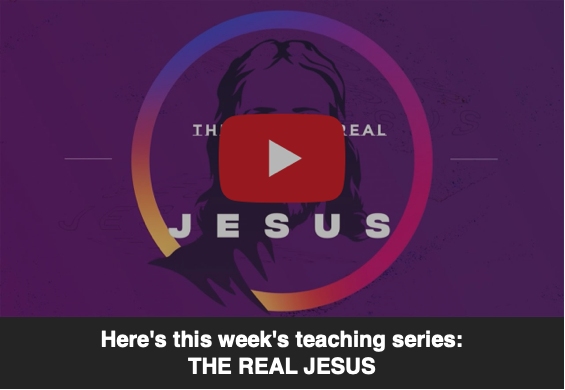
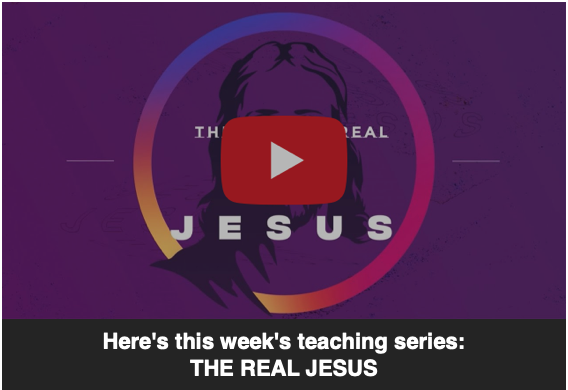
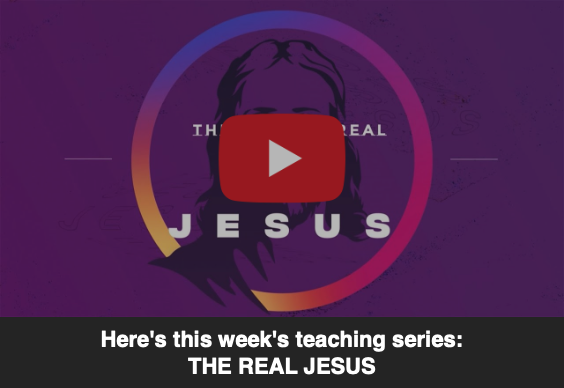
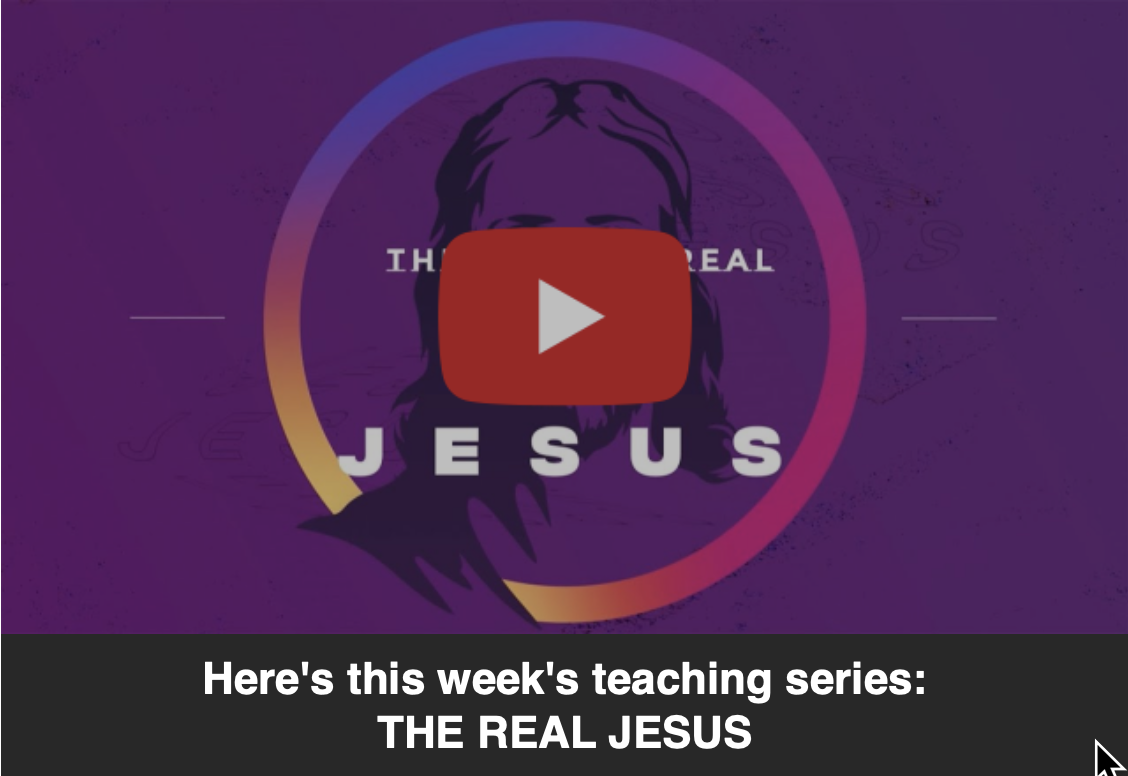
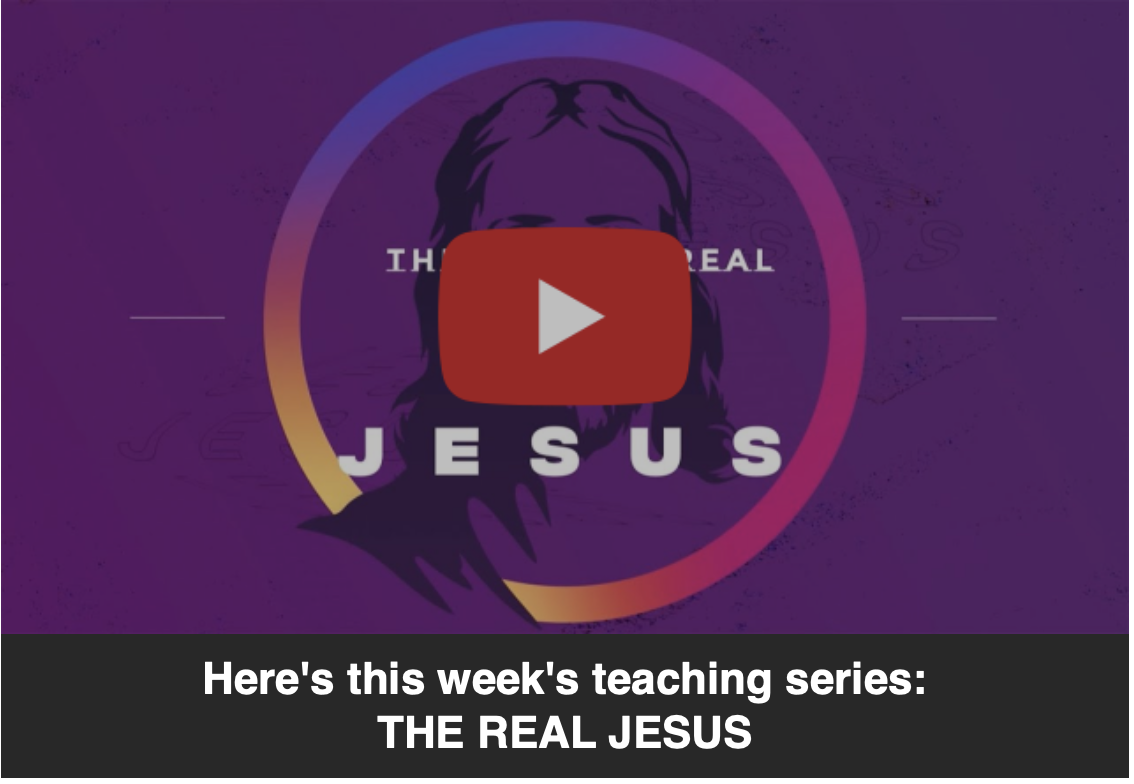
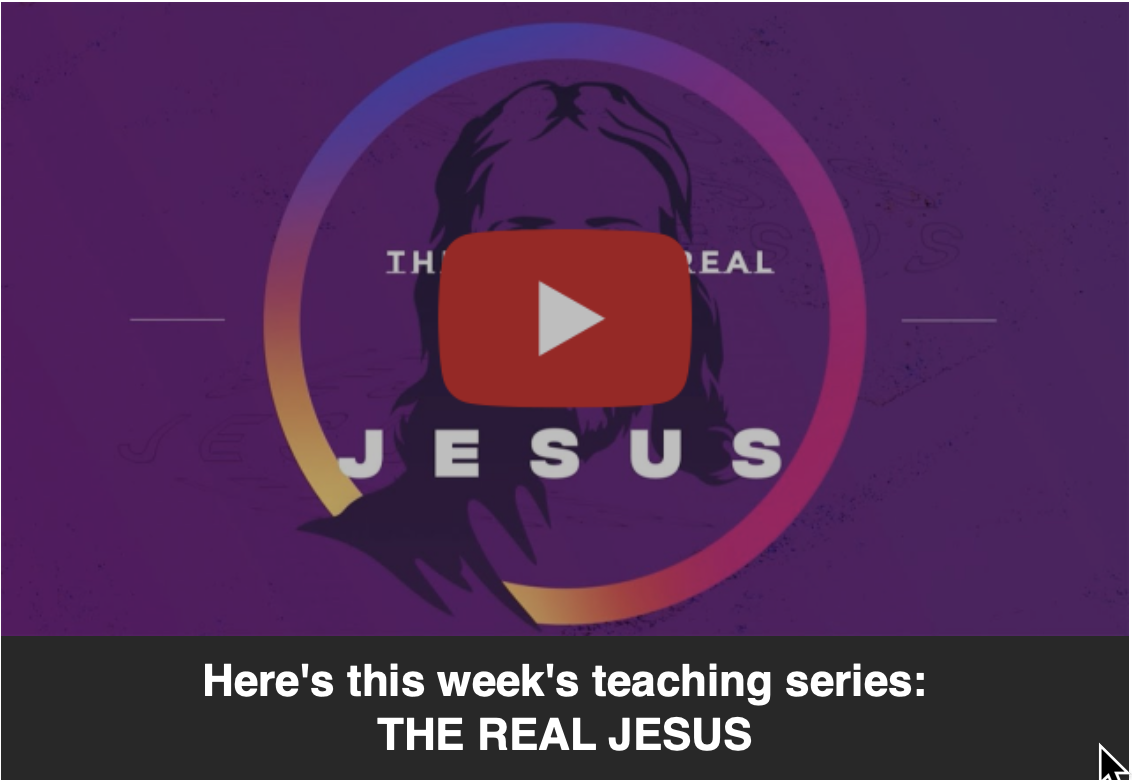
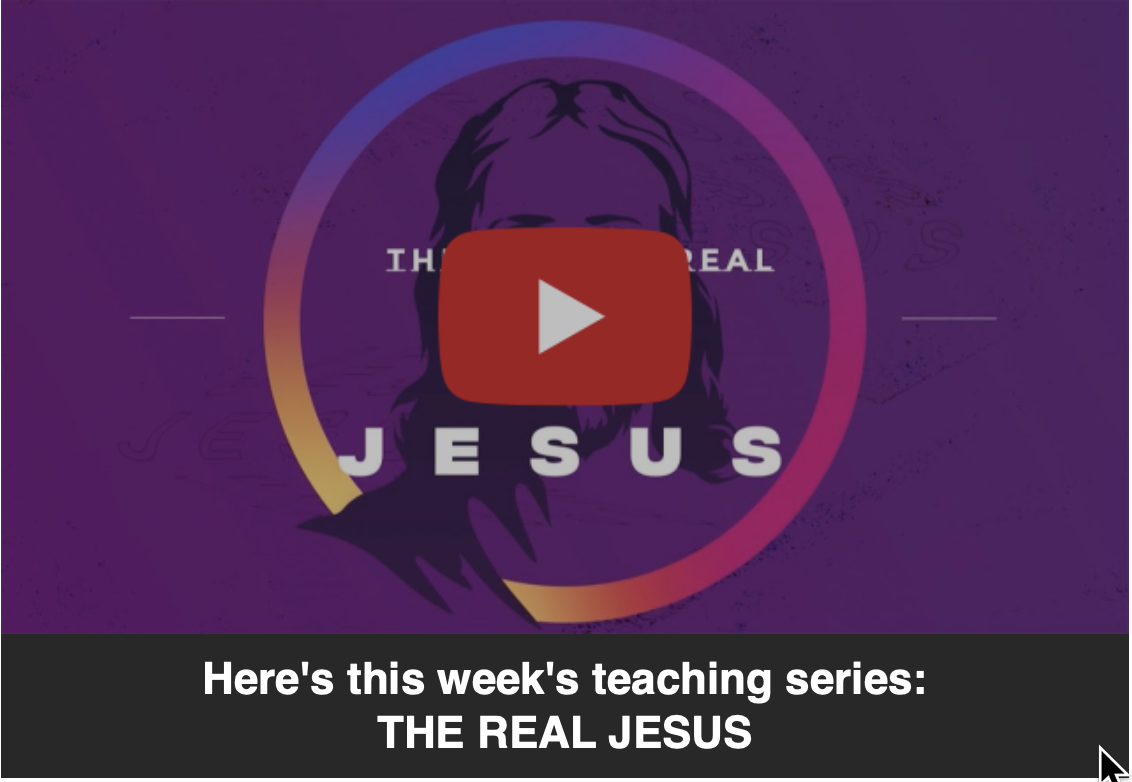
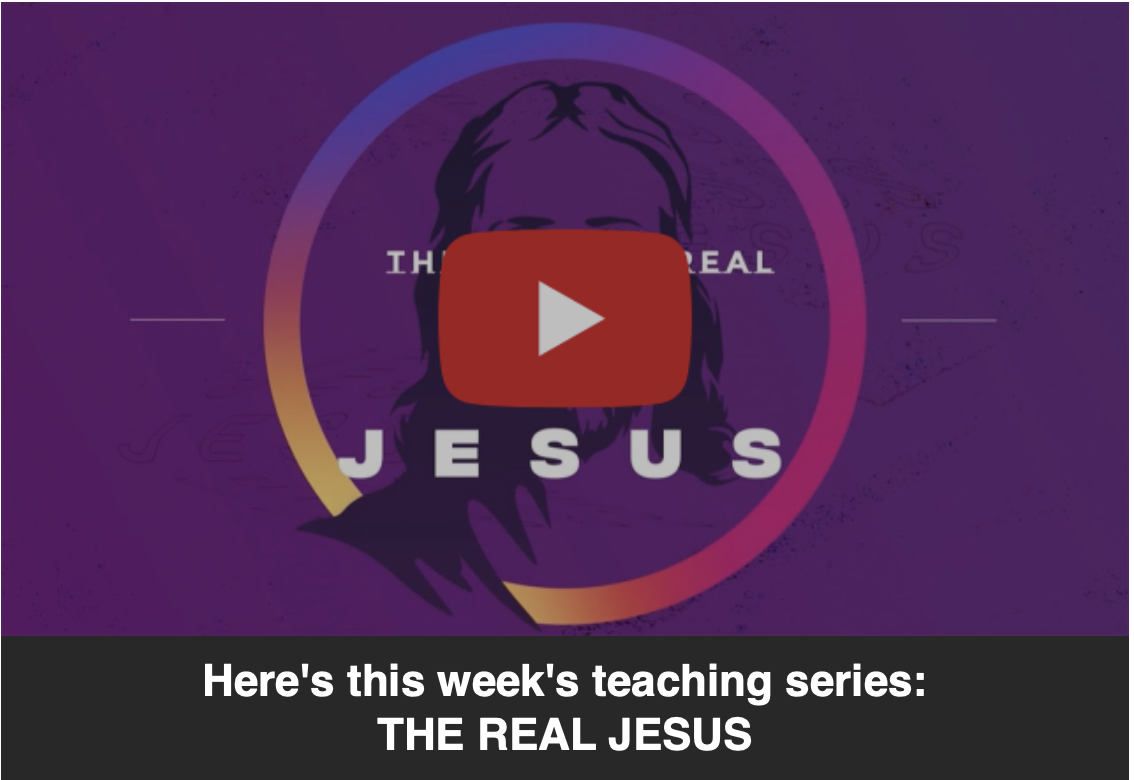
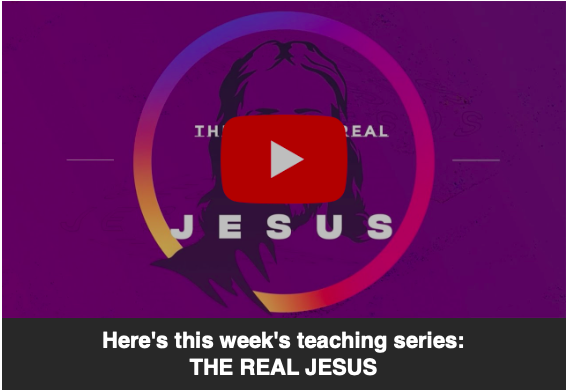
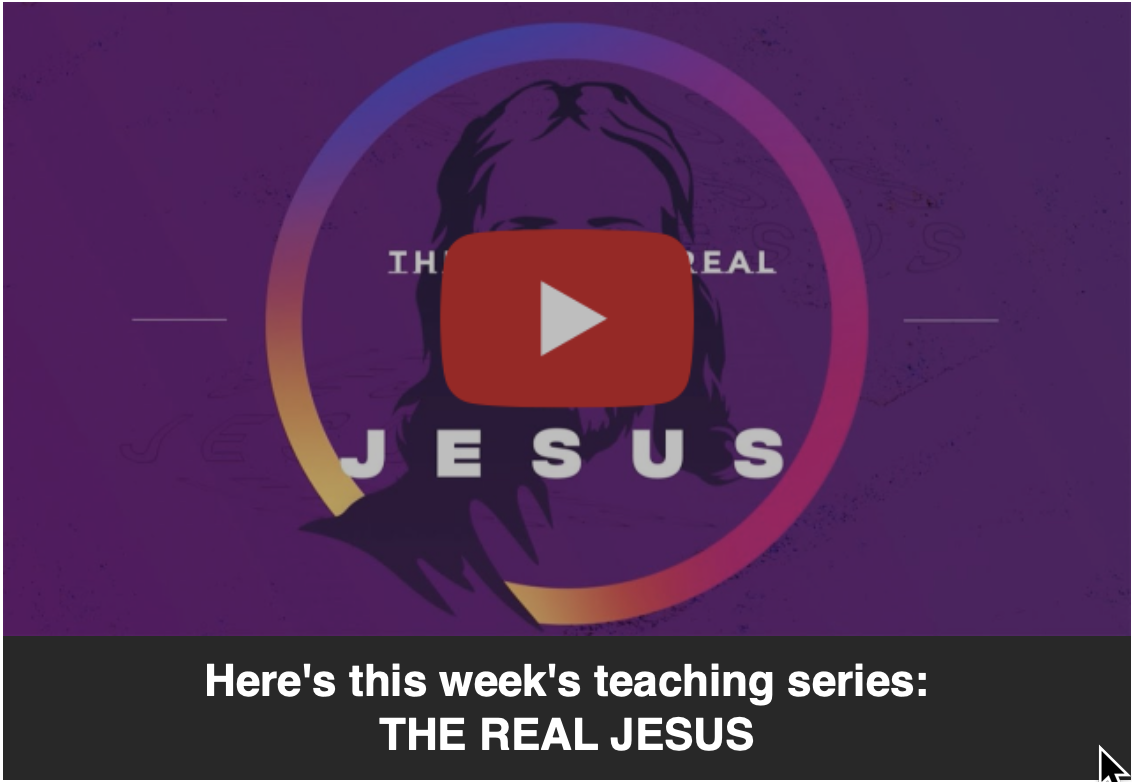
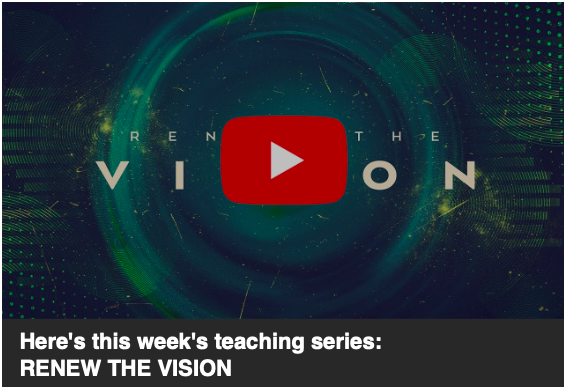
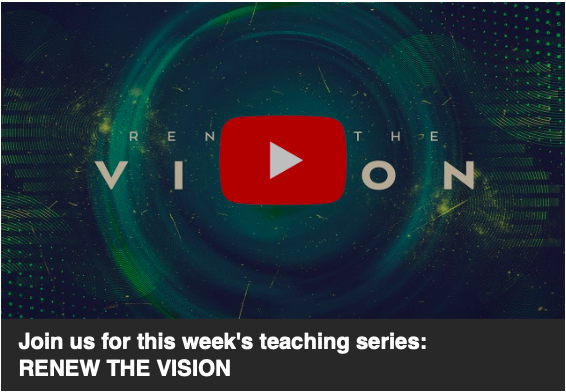
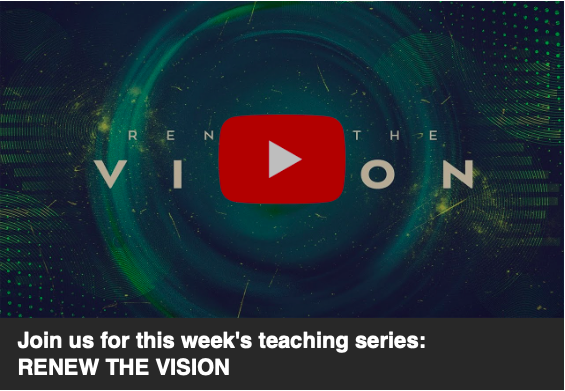




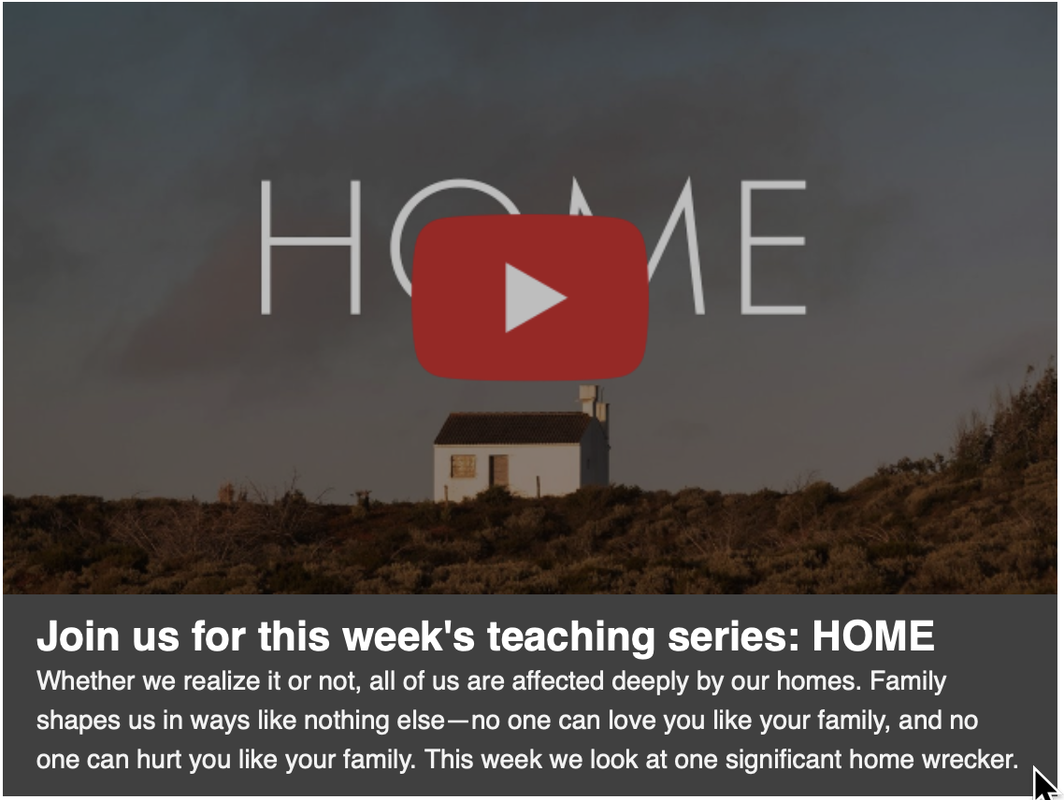

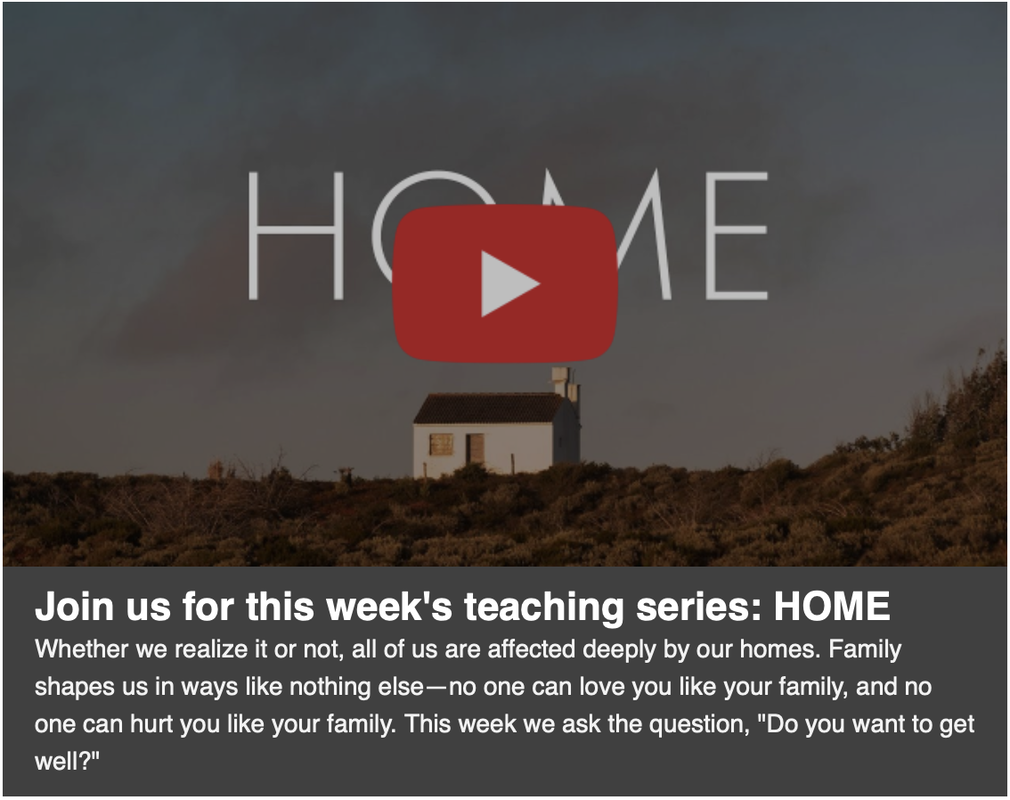
 RSS Feed
RSS Feed
